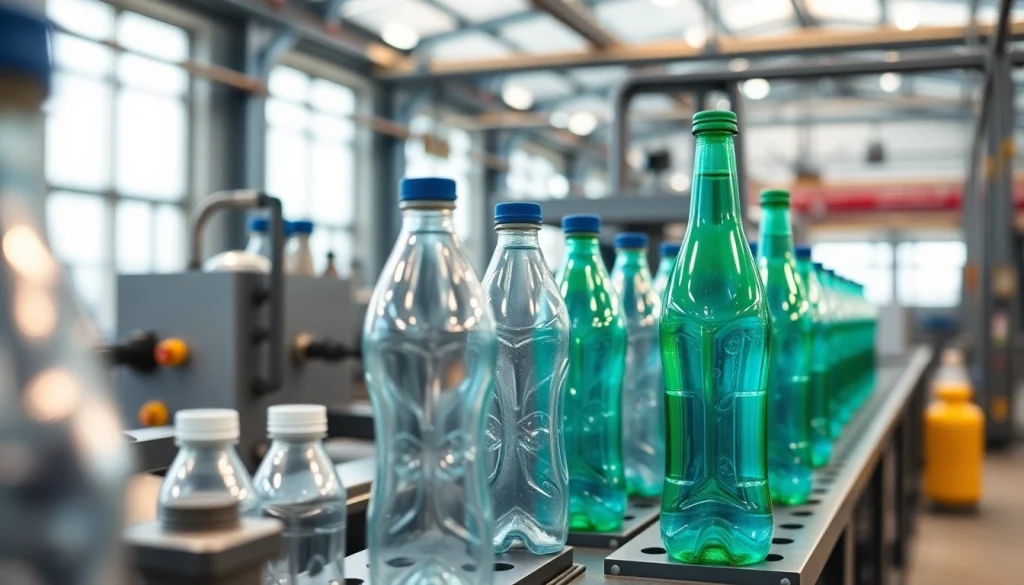Understanding Filling Machines
What is a Filling Machine?
A filling machine is a crucial piece of equipment in various industries, designed to dispense and fill products into containers. This process is fundamental to sectors such as food and beverage, pharmaceuticals, cosmetics, and chemicals. These machines can automate the filling process, ensuring consistent product volume and reducing the risk of spillage or waste. The primary objective of a filling machine is to enhance efficiency and accuracy in product packaging.
Types of Filling Machines
Filling machines can be categorized using different criteria, including their method of operation, the type of products they handle, and their automation level.
- Volumetric Fillers: These machines fill containers based on a specific volume. This category includes Piston Fillers and Cup Fillers.
- Digital Fillers: Using digital interfaces, these machines can precisely measure and fill liquids with high accuracy.
- Gravity Fillers: Primarily used for non-foaming and low-viscosity liquids, these machines rely on gravity to fill containers.
- Pressurized Fillers: Suitable for carbonated beverages, these machines utilize pressure to prevent foaming during filling.
- Pump Fillers: These are versatile in that they can handle various product types, including both liquids and creams.
Applications of Filling Machines in Various Industries
Filling machines serve different functions across industries. Here are key applications:
- Food and Beverage: Filling machines are essential for bottling beverages, containing juices, water, and soft drinks.
- Pharmaceuticals: For accurate dosage, filling machines are used to dispense liquid medications into bottles and vials.
- Cosmetics: Creams, lotions, and gels are filled using specialized filling machines that maintain hygiene and prevent contamination.
- Chemicals: Filling machines also handle robust substances, including cleaning agents and industrial chemicals.
Why Choose a Reliable Filling Machine Supplier?
Criteria for Selecting a Supplier
Selecting the right supplier for filling machines is vital for any business involved in packaging. Consider the following criteria:
- Experience and Expertise: Look for suppliers with extensive knowledge and a proven track record in manufacturing filling machines.
- Quality Assurance: Ensure that the supplier adheres to quality standards and offers reliable equipment.
- Customer Support: A good supplier should offer comprehensive support during and after installation.
- Customization Options: The ability to customize the machine to fit specific production needs can significantly enhance operational efficiency.
Benefits of Quality Equipment
Investing in high-quality filling machines from a reputable Filling Machine Supplier brings numerous benefits, including:
- Increased Efficiency: Quality machines operate with less downtime and greater speed.
- Consistency: A reliable filling machine ensures that each container is filled to the exact amount, maintaining product quality.
- Durability: High-quality equipment lasts longer, reducing the need for frequent replacements and repair costs.
Customer Testimonials and Reviews
Positive customer testimonials often reflect the reliability of a supplier. Look for reviews that highlight aspects like machinery performance, customer service, and after-sales support. This feedback can provide insight into what you can expect from a supplier.
Top Features to Look For
Automation vs. Manual Operation
When deciding on a filling machine, one crucial consideration is the level of automation. Fully automated machines require minimal operator intervention, significantly increasing production speed. In contrast, manual or semi-automatic machines may be cost-effective for small-scale operations but can result in lower efficiency and higher labor costs over time.
Accuracy and Speed Considerations
Accuracy is key in industries such as pharmaceuticals and food and beverage. Ensure that the filling machine you select can meet your required tolerance levels. Additionally, consider the machine’s speed and how it affects your production timelines and throughput. Machines designed for high-speed operations can often fill numerous containers simultaneously, optimizing productivity.
Customization Options
Every business has unique requirements based on the products they fill. Therefore, having a supplier that offers customization options is advantageous. Whether it’s the design of the filling nozzle or the type of fill technology, customizable machines can adapt to different products and packaging formats.
Cost and Investment Insights
Understanding Cost Factors
The cost of filling machines can vary significantly based on several factors, including:
- Type of Machine: Automated machines tend to be more expensive than manual options due to their advanced technology.
- Customization: Custom-built machines could require additional investment for design and engineering.
- Brand and Quality: Leading brands may charge a premium for their equipment built to high quality standards.
Long-Term Value vs. Initial Investment
While the upfront cost of purchasing a filling machine is important, it’s essential to consider long-term value. A higher initial purchase price may be justified if the machine delivers exceptional efficiency, minimal downtime, and superior reliability, translating into lower operational costs over time.
Financing Options for Businesses
Many suppliers offer financing options to help businesses acquire the necessary equipment without facing immediate budget constraints. It’s worthwhile to explore leasing agreements or installment payment plans that match your business cash flow and revenue cycle.
Future Trends in Filling Machine Technology
Smart Technology Integration
The integration of smart technology into filling machines is transforming the industry. Features such as IoT connectivity and real-time monitoring systems can help operators optimize machine performance, troubleshoot issues remotely, and analyze production data for continuous improvements.
Eco-Friendly Innovations
With growing environmental concerns, manufacturers are focusing on creating machines that minimize waste and reduce energy consumption. For example, some new filling machines are designed to use less power and generate less material waste, helping companies to meet sustainability goals while maintaining profitability.
The Rise of Customizable Solutions
The demand for bespoke filling solutions is on the rise, reflecting the need for manufacturers to differentiate their products in a crowded market. Suppliers who prioritize customization will likely cater to a broader range of industries and applications, thus capturing a larger share of the market.
You may also like
-
Die besten Claas Maschinen für moderne Landwirtschaft
-
Understanding Machine Vision: Applications, Technology, and Future Trends
-
Effective Ammonia Detector Solutions for Industrial Safety and Monitoring
-
Reliable Semi-Truck Towing in Tampa for Quick Roadside Assistance
-
Your Trusted Filling Machine Supplier for Efficient Packaging Solutions
